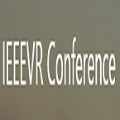Users readily embrace the rapid advancements in virtual reality (VR) technology within various everyday contexts, such as gaming, social interactions, shopping, and commerce. In order to facilitate transactions and payments, VR systems require access to sensitive user data and assets, which consequently necessitates user authentication. However, there exists a limited understanding regarding how users' unique experiences in VR contribute to their perception of security. In our study, we adopt a research approach known as ``technology probe'' to investigate this question. Specifically, we have designed probes that explore the authentication process in VR, aiming to elicit responses from participants from multiple perspectives. These probes were seamlessly integrated into the routine payment system of a VR game, thereby establishing an organic study environment. Through qualitative analysis, we uncover the interplay between participants' interaction experiences and their security perception. Remarkably, despite encountering unique challenges in usability during VR interactions, our participants found the intuitive virtualized authentication process beneficial and thoroughly enjoyed the immersive nature of VR. Furthermore, we observe how these interaction experiences influence participants' ability to transfer their pre-existing understanding of authentication into VR, resulting in a discrepancy in perceived security. Moreover, we identify users' conflicting expectations, encompassing their desire for an enjoyable VR experience alongside the assurance of secure VR authentication. Building upon our findings, we propose recommendations aimed at addressing these expectations and alleviating potential conflicts.
翻译:暂无翻译





